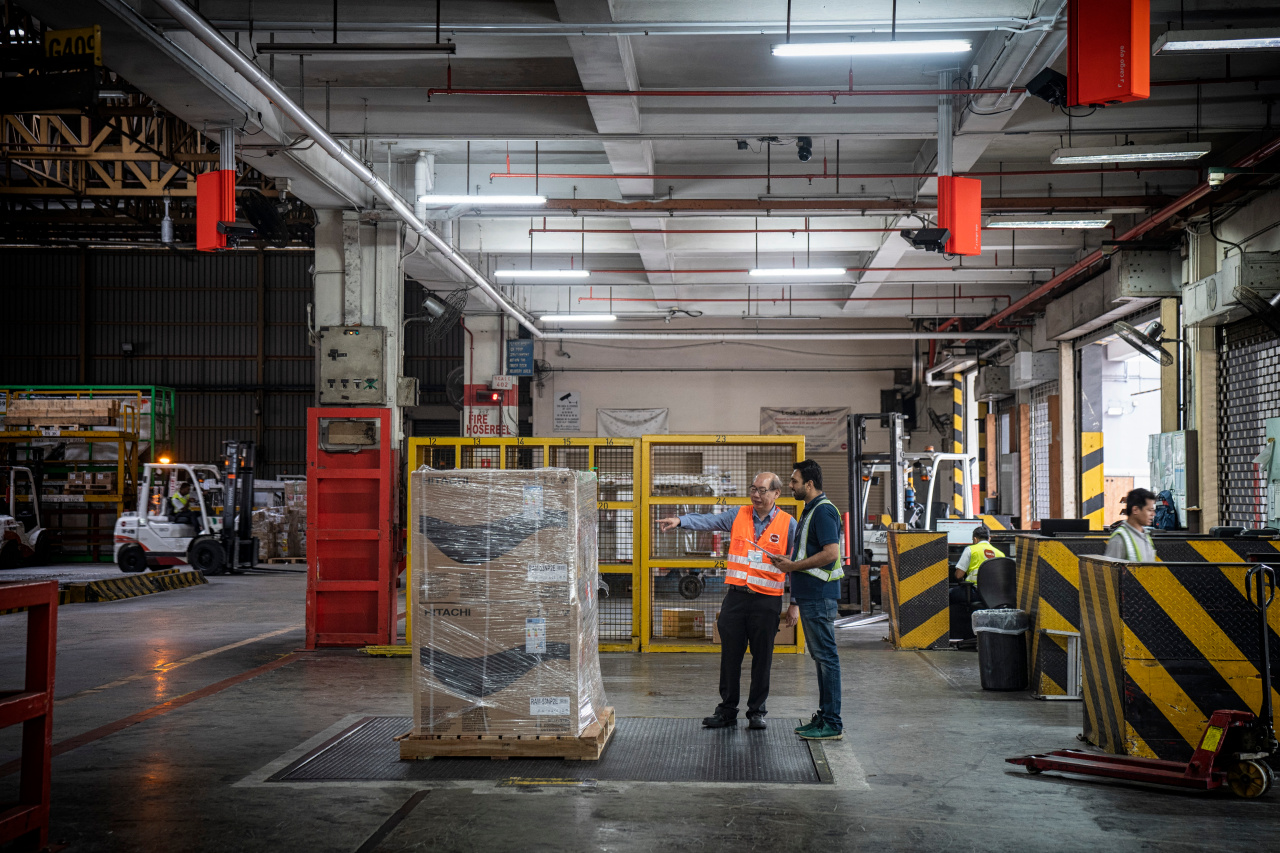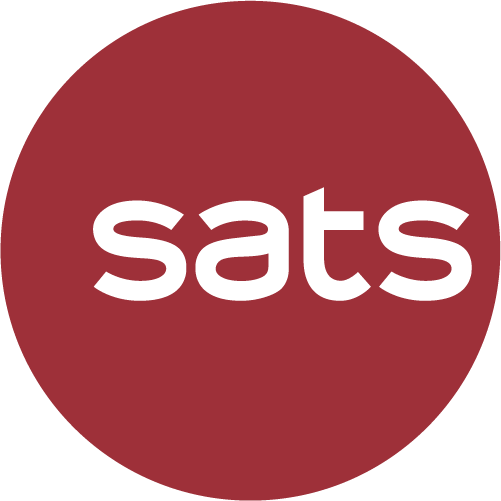Gateway Services
Operations Review
Download the Gateway Services Operations Review (1.2MB).
S$868.8 M
Revenue +3.7% from FY2018-19
Globalisation and urbanisation connect us together more than ever, bringing great benefits to society but also heightening the risk of the spread of infectious diseases like COVID-19. SATS has demonstrated resilience in overcoming this challenge to protect the operational integrity of the essential services that it provides to the air transport ecosystem, drawing on decades of experience in managing disruptions. SATS has invested in digitalisation and built up skills to develop new capabilities that will create value for its customers and business partners in their hub operations as aviation volumes return.
SATS Gateway Services revenue increased $31 million or 3.7% to S$868.8 million in FY19-20, on the back of the GTR consolidation and strong ground handling performance before the coronavirus hit. Operating volumes, including SATS subsidiaries, joint ventures and associates, for passengers handled was up 24.3%, flights handled increased 18.7%, cargo tonnage dipped 5%, while ships calls dropped 17.3%.
Enhancing the Travel Experience
As people start to travel more again after COVID-19, their safe journeys require additional care and innovation. SATS is helping to establish new procedures, incorporating health checks and fully digital, touchless passenger journeys. In Jakarta, PTJAS took passenger services up a notch with its new Airport Special Assistance (ASA) mobile application, Indonesia’s first digital “personal assistant” service, to assist travellers at Soekarno-Hatta International Airport with their check-ins, baggage collection and transportation needs.
At Beijing’s new Daxing International Airport, joint venture Beijing CAH SATS Aviation Services (BCS) provides off-airport check-in services, enabling travellers to check in their bags before commuting to the airport.
Sustainability remains at the heart of everything that SATS does as it strives to create an even better customer experience. In India, Air India SATS (AISATS) developed a towable ramp retrofitted with a canopy and air-conditioning system that runs on solar and battery power, to deplane passengers with reduced mobility at remote aircraft bays in Hyderabad.
Extending Connectivity
During the year, the partnership with China’s Capital Airports Holding Company extended SATS connectivity to Daxing International Airport through two joint ventures – BCS and Beijing Daxing International Airport Inflight Catering.
SATS
has also won a second cargo terminal concession in Saudi Arabia after Dammam at King Khalid International Airport (KKIA), Riyadh. The new terminal operation extends its network of quality cargo corridors in the Middle East by linking Oman, Dammam
and Riyadh.
Within ASEAN, subsidiary GTR launched a 93,000-square-foot air cargo hub with an annual air freight handling capacity of 300,000 tonnes at the KLIA Air Cargo Terminal 1 in Malaysia. SATS signed an MOU with PSA International to allow shippers and logistics providers to benefit from both Singapore’s world-class airport and port for seamless, intermodal shipments between sea and air.
Automation and Digitalisation
COVID-19 has presented the opportunity to accelerate the digital transformation of operations to improve service for SATS customers while enhancing productivity and safety across the business. For example, SATS successfully linked Speedcargo’s Cargo Eye, a cargo dimensioning system using AI from research platform TUMCREATE, with COSYS+, a proprietary cloud-based cargo terminal handling and management system, to offer better traceability to the air cargo ecosystem.

SATS also launched the Digital Control Tower platform, which integrates operational data with that of various airlines and airport stakeholders to provide real-time visibility of ground operations for proactive flight handling and collaborative decision-making at the SATS Integrated Operations Command.
Over at its India hub, SATS invested in process automation through employee engagement platforms, a universal API gateway to expedite the flow of real-time information within its systems, as well as automated temperature monitoring at its Bengaluru Coolport. In the Middle East, Transom SATS Cargo (formerly known as Oman Air SATS Cargo) introduced a mobile application with track & trace and payment capabilities to facilitate more convenient transactions for its customers. Closer to home, GTR adopted Malaysia’s nation-wide initiative, JomPAY, for freight forwarders and cargo agents to make bill payments electronically.
Awards and Certifications
SATS is pleased to be the world’s first cargo terminal operator to obtain IATA’s new Smart Facility Operational Capacity (SFOC) certification in collaboration with Singapore Airlines, streamlining audit complexity and cargo handling operations for greater efficiency. SATS Coolport also attained the highest standards in Food Safety Management Systems: ISO22000: 2018 and HACCP SS444: 2018 for upholding exacting standards for perishable handling. Over in Malaysia, GTR successfully completed and attained IATA’s Safety Audit for Ground Operations (ISAGO) certification.
China associate Beijing Aviation Ground Services (BGS) became the first ground handler at Beijing Capital International Airport and second in China to obtain IATA’s CEIV Pharma certification. Joint venture AISATS also garnered industry recognition by winning “Air Cargo Handling Agent of the Year – Pharma Shipments” accorded by CargoConnect 2019, and “Best Air Cargo Terminal Operator – Cold Chain” at the 2019 India Cargo Awards.
In the cruise sector, Marina Bay Cruise Centre Singapore was voted Asia’s Best Cruise Port by Travel Weekly Asia for the second consecutive year.
